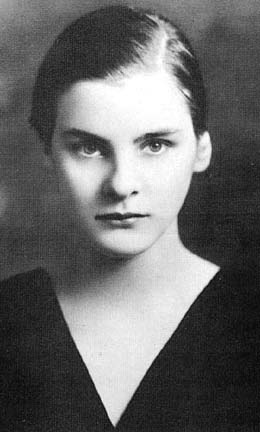In her 1973 essay “The Missing Link,” Rand quotes, disapprovingly, from an unidentified “lady novelist” (jeez, was that phrase still in use in the 1970s?), as follows:
A well-known lady novelist once wrote an essay on the nature of fiction. Adopting an extreme Naturalist position, she declared: “The distinctive mark of the novel is its concern with the actual world, the world of fact …” And by “fact,” she meant the immediately available facts – “the empiric element in experience.” “The novel does not permit occurrences outside the order of nature – miracles. … You remember how in The Brothers Karamazov when Father Zossima dies, his faction (most of the sympathetic characters in the book) expects a miracle: that his body will stay sweet and fresh because he died ‘in the odor of sanctity.’ But instead he begins to stink. The stink of Father Zossima is the natural, generic smell of the novel. By the same law, a novel cannot be laid in the future, since the future, until it happens, is outside the order of nature ….”
She declared that “the novel’s characteristic tone is one of gossip and tittletattle. … Here is another criterion: if the breath of scandal has not touched it, the book is not a novel. … The scandals of a village or a province, the scandals of a nation or of the high seas feed on facts and breed speculation. But it is of the essence of a scandal that it be finite … It is impossible, except for theologians, to conceive of a worldwide scandal or a universe-wide scandal; the proof of this is the way people have settled down to living with nuclear fission, radiation poisoning, hydrogen bombs, satellites, and space rockets.” Why facts of this kind should be regarded as the province of theology, she did not explain. “Yet these ‘scandals,’ in the theological sense, of the large world and the universe have dwarfed the finite scandals of the village and the province ….”
She then proceeded to explain what she regards as “the dilemma of the novelist”: we forget or ignore the events of the modern world, “because their special quality is to stagger belief.” But if we think of them, “our daily life becomes incredible to us. … The coexistence of the great world and us, when contemplated, appears impossible.” From this, she drew a conclusion: since the novelist is motivated by his love of truth, “ordinary common truth recognizable to everyone,” the novel is “of all forms the least adapted to encompass the modern world, whose leading characteristic is irreality. And that, so far as I can understand, is why the novel is dying.”
I always wondered who that rather blinkered “lady novelist” was. For anyone else who was wondering: I’ve discovered it was Mary McCarthy, in a 1960 piece titled “The Fact in Fiction.”
That’s all.

Professor Long,
I have to say that this is an interesting piece, though I didn’t really get the underlying message. However, this isn’t why I am here. The real reason that I am posting is that I was wondering if you delved into any little-known facts regarding the following:
John F Kennedy (Not the conspiracy theories that spawned from his assassination, but his personal life and political career.)
Eli and Edwin Edwards
Huey and Earl Long
The Landrieus
The Louisiana Sheriffs’ Association
Former Baton Rouge state senator Cleo Fields